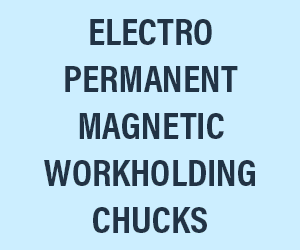Metal-Cored Electrode Improves Welding Travel Speed
Fought & Company relied on a solid electrode in its submerged arc welding process for bridge fabrication applications until a composite metal-cored electrode from Hobart Brothers improved their welding travel speed by 40 percent.
Posted: February 12, 2013
Composite metal-cored electrodes also provide higher deposition rates compared to solid electrodes of equal size (assuming the same amperage, electrical stick-out and flux are applied).
Since composite metal-cored electrodes are made using a steel sheath with alloying powders and materials inside, the current is primarily conducted through the outer sheath. This results in higher burn-off rates and translates into the potential for increased deposition rates, typically resulting in faster travel speeds.
Company welding parameters went from 450 amps at 32 volts with its previous solid electrode to 550 amps at 34 volts with composite metal-cored Metalloy EM13K-S. “With our full penetration welds, we’ve gone from topping out at about 450 amps to 600 amps,” added Fugate.
The material contained in the core of a composite metal-cored electrode includes deoxidizers and scavengers that scavenge the weld pool of mill scale and other impurities.
Alloying materials are added to some electrodes to achieve additional properties in the finished weld, such as CVN toughness, post weld heat treatment, long term creep resistance and corrosion resistance.
“We run the dual head sub arc process for welding the stiffener to the web,” explained Fugate. “We weld on both sides of that stiffener at the same time. On thinner members, where the fillets actually fully penetrate the web and overlap, we get porosity problems because you don’t get your traditional hot degassing from both sides, but we’re not finding that here with this electrode. So having these characteristics actually helps us, even on clean materials.”
Another area that concerned Fugate was how a composite metal-cored electrode would feed through the system. Past experience with a composite metal-cored electrode led him to believe that these were soft and, when increased drive-roll tension was applied, the wire would crush or deform.
“We had nothing but feeding problems with other composite metal-cored electrodes we tried because the guys’ first thought is to increase the drive roll tension, and that can deform the wire and lead to feeding problems,” stated Fugate. “We don’t have that problem with this electrode, and we’ve been running it for quite some time now.”
ELECTRODE CHANGE PROVES PRODUCTIVE
The company regularly has numerous bridge and structural steel projects being staged in its yard. Their ability to process each project efficiently and send it into the field for erection is paramount to their success.
The 40 percent increase in travel speed resulting from the transition to a composite metal-cored electrode is the definition of minimal effort/maximum reward.
“We had reached a certain level of expectation of where we would be if we stuck with the solid sub arc electrodes,” recalled Fugate. “We reached a plateau in terms of deposition. Hobart brought in the composite metal-cored electrode and we found it to have spectacular properties.
“We worked with it and found that we could improve travel speed by 40 percent, which was a huge change over where we peaked with solid electrodes,” continued Fugate. “And we could still keep the upper toe of the fillet leg undercut under control and get our desired properties at those high heat inputs. We’re in and out 40 percent faster at the start of a project, which is our traditional log jam.”
The new composite metal-cored electrode has made a believer out of Fugate and his staff of foremen and welders, who remained skeptical until shown just what an electrode change could do. “It’s a mind-boggling improvement,” smiled Fugate. “We like to make 10 percent changes. We’re happy with that. We’ve never had an improvement that has been this dramatic.”
Fought & Company, Inc., 14255 SW 72nd Avenue, Tigard, OR 97224-8042, 503-639-3141, Fax: 503-620-3279, www.fought.org.
Tri-Mark, Hobart Brothers, 101 Trade Square, Troy, OH 45373, 937-332-4000, www.hobartbrothers.com.










